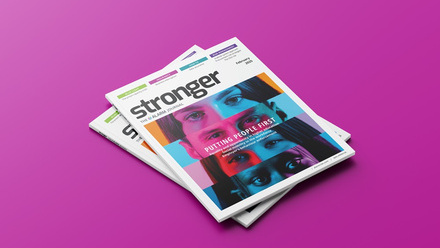The Act covers nine protected characteristics: age, disability, gender reassignment, marriage and civil partnership, pregnancy and maternity, race, religion or belief, sex, and sexual orientation.
While good employers recognise the benefits of ensuring their workforces are representative of the wider society and, the client base within which they operate, it is always worth re-evaluating how to go about creating a diverse workforce and reaffirming the benefits it brings.
Creating a diverse workforce
Review your recruitment processes
We live in a meritocracy where it’s important to recruit the right people into the right roles. A few tweaks to your recruitment process could open wider pools of high calibre candidates, while increasing your organisation’s diversity.
For example, consider apprenticeships or graduate training programmes to aid age diversity, and promote adjustments made routinely as a disability-friendly employer.
Try to ensure you have diverse recruitment panels, taking into account some potential candidates may feel they can’t be what they can’t see.
Provide recruitment training to your hiring managers to get the best from candidates, while avoiding common yet risky pitfalls. Usually this means remembering to ask candidates open questions and refraining from making assumptions or asking about their personal lives.
Be visibly committed to equality, diversity and inclusion
Boldly highlight your commitment to diversity with a prominent statement within your recruitment documentation, as well as on your organisation’s website. Potential candidates will undoubtedly view your website.
Celebrate inclusively
Companies that celebrate a range of different events and festivals such as International Women’s Day, Black History Month, Pride, Lunar New Year, Christmas, Eid, Diwali, Vaisakhi, Vesak and Yom Kippur to name but a few, create a welcoming atmosphere for those of different diverse groups and it helps promote cultural understanding. Why not publish an inclusion calendar in your workplace?
Introduce diversity friendly policies and benefits
Strong flexible working and family friendly policies encourage diversity and are shown to help attract and retain employees at different points in their lives.
For example, consider working parents (particularly women), and employees at the latter stages of their career transitioning towards retirement. Support the increasing numbers among the workforce with eldercare responsibilities.
Hold regular training for all employees
Keep equality, diversity and inclusion on the agenda by ensuring all staff at all levels receive comprehensive training, including exploring unconscious bias.
We should all acknowledge we all have prejudices however irrational they may be. Our attitudes and beliefs are moulded at an early age over a long period of time. Most people do not intend to make life hard for those who are different, but unfortunately, we are bombarded with negative stereotypes and myths.
Sometimes a limited opportunity for mixing with people who are different can also lead to ignorance, insensitivity and unthinking prejudice. The isolation of lockdown has not helped. However, providing employees with the tools to learn and develop self-awareness is key to preventing prejudices entering the workplace.
Foster open communication internally
Operating a flat structure and avoiding unnecessary hierarchy empowers employees to have a voice and increases their engagement.
Bear in mind that some diverse groups may have experienced obstacles in their lives and careers and have had to work harder for their seat at the table. Fostering open dialogue with employees of all groups and backgrounds encourages diversity of ideas and thought and can benefit organisations. For individual growth, surrounding yourself with people who don’t look and sound like you is stimulating. It is also proven to lead to high functioning teams.
All people are individuals and have something unique and valuable to contribute. Building relationships with employees and colleagues, and building diverse teams, will lead to innovation, adaptability, and best-in-class decision-making.






